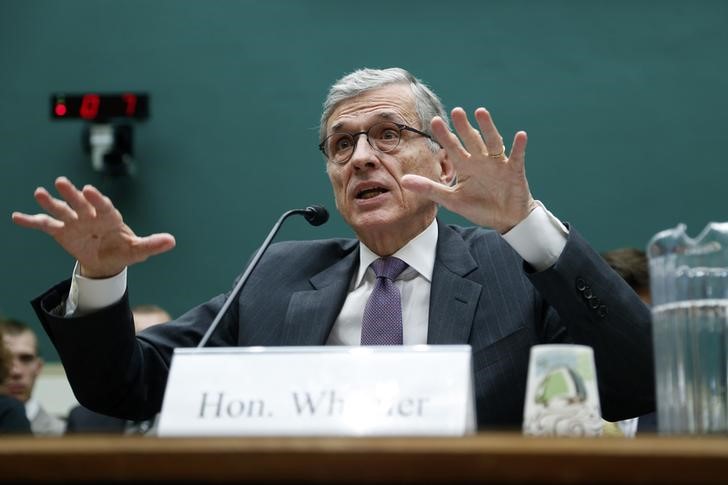By Alina Selyukh and Diane Bartz
WASHINGTON (Reuters) - New U.S. "net neutrality" rules are expected to regulate for the first time deals in which content companies such as Netflix Inc pay broadband providers to connect with their networks for smooth downloads, according to people familiar with the plan.
Federal Communications Commission Chairman Tom Wheeler next week will reveal the latest draft of new rules that would guide how Internet service providers (ISPs) such as Comcast Corp manage traffic on their networks, aiming to ensure all web content is treated equally.
The new draft is expected to expand the authority of the FCC to previously unregulated traffic exchange deals, known as interconnection agreements, according to two sources who spoke anonymously because the plan has not been made public.
"It's the only way they can make it work with the principles that President (Barack) Obama outlined and Chairman Wheeler reaffirmed," said David Schaeffer, chief executive of Cogent Communications Group Inc, a long-haul Internet traffic carrier that has advocated for regulation of interconnection deals.
Wheeler is expected to offer new rules that align with Obama's call to ban ISPs from blocking or slowing down websites as well as from charging content companies for "prioritised" downloads, so no traffic gets stuck in any slow lane.
Wheeler had been considering whether to include interconnection deals in net neutrality rules, which in the past only regulated the part of the network connecting the ISP to the consumer and not the connections made on parts of the network further back. Previous rules were struck down in court last year.
Schaeffer and other sources said FCC officials have not yet determined how exactly the agency would adjudicate fees paid by content companies to owners of the networks that would carry their traffic.
They said the discussion was very fluid and several options were considered, including a case-by-case approach to resolving complaints, which would be more palatable to ISPs, or an outright ban on fees for interconnecting with networks, which Netflix has sought.
"They establish that they have jurisdiction, that's the most important fight," Schaeffer said, adding the FCC could also establish the authority over interconnection in new rules but delay writing specific criteria.

ISPs have previously argued the FCC had no authority to regulate interconnection deals, which jumped into spotlight last year during a spat between Netflix and Verizon Communications Inc where both sides accused each other of causing slower download speeds by the way they routed traffic.